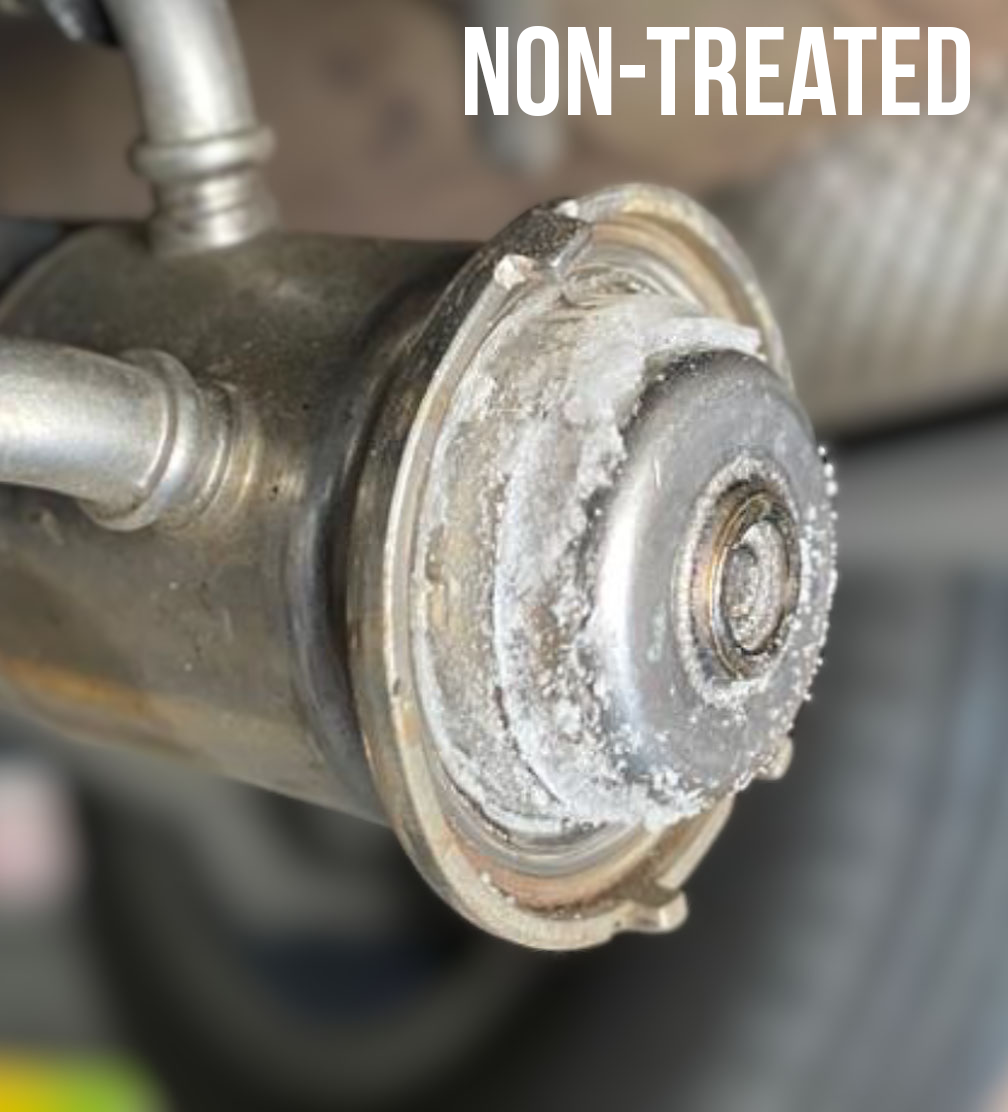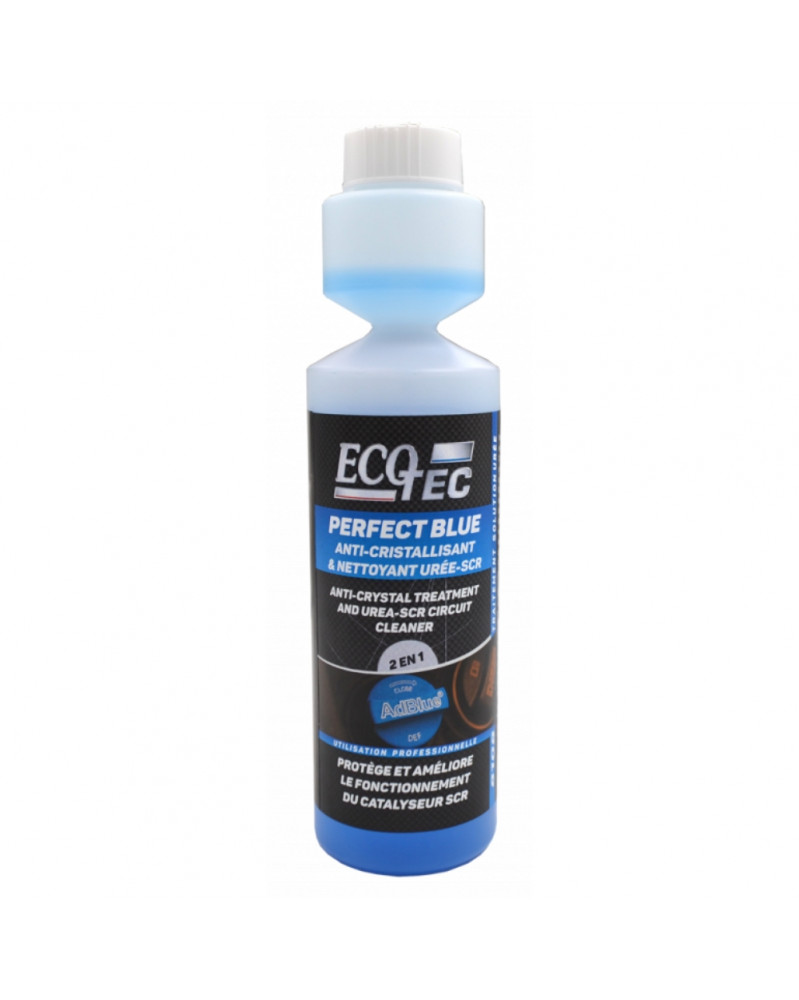Adblue Anti Cristallisation: The Ultimate Guide To Keep Your Car Running Smoothly
Let me tell you something, folks. Adblue anti cristallisation is one of those things that every modern car owner needs to know about. If you're driving a vehicle with a diesel engine and selective catalytic reduction (SCR) technology, this stuff is a game-changer. But what exactly is Adblue, and why does it need anti-cristallisation protection? Let’s dive right into it because this is important stuff, trust me.
Nowadays, cars are more advanced than ever before, and so are the systems that keep them running clean and efficient. Adblue plays a crucial role in reducing harmful emissions, but it comes with its own set of challenges. One of the biggest issues is cristallisation, which can cause serious problems if not addressed properly. That's where anti-cristallisation solutions come in.
We’re not just talking about some fancy chemical here; we’re talking about something that could save you from costly repairs down the line. So, whether you’re a seasoned mechanic or someone who just likes to keep their car in top shape, understanding Adblue anti-cristallisation is essential. Let’s get started, shall we?
- Trolls 3 Where To Watch Your Ultimate Guide To Catching The Grooviest Adventure
- Unveiling The Legacy Of Enid Afb A Journey Through Time And History
Before we jump into the nitty-gritty details, let’s take a quick look at what we’ll cover in this article. You can click on any section below to jump straight to it:
- What is Adblue?
- Why is Cristallisation a Problem?
- How Does Anti-Cristallisation Work?
- Common Causes of Cristallisation
- How to Prevent Cristallisation
- Best Practices for Adblue Storage
- Cost of Anti-Cristallisation Solutions
- Repairing Cristallisation Damage
- Alternatives to Anti-Cristallisation
- Conclusion and Next Steps
What is Adblue?
Alright, let’s start with the basics. Adblue is a solution made from urea and deionized water, and it’s used in diesel vehicles equipped with SCR technology. The main job of Adblue is to break down harmful nitrogen oxide (NOx) emissions into harmless nitrogen and water vapor. Sounds pretty cool, right?
Why Do Diesel Engines Need Adblue?
Here’s the deal: diesel engines are powerful and efficient, but they also produce a lot of NOx emissions, which are bad for the environment. To meet modern emission standards, manufacturers have turned to SCR technology, which relies on Adblue to neutralize these harmful gases. Without Adblue, your car might not even start, or it could run poorly.
- Angelina Jolie Bells Palsy The Story Behind Her Battle And Triumph
- Amy Adams The Stellar Journey Of A Hollywood Icon
Now, here’s the kicker: Adblue can form crystals under certain conditions, and that’s where the trouble begins. Let’s talk about why cristallisation is such a big deal.
Why is Cristallisation a Problem?
Imagine this: you’re driving along, minding your own business, when suddenly your car starts acting up. You check the dashboard, and there’s a warning light flashing about Adblue issues. What happened? Chances are, cristallisation has occurred in your Adblue system.
When Adblue crystallizes, it can block nozzles, pipes, and tanks, leading to all sorts of problems. Your car might not perform as well, or worse, it could stop working altogether. Repairing cristallisation damage can be expensive, so prevention is key.
What Causes Adblue Cristallisation?
Adblue can crystallize for several reasons, including:
- Low temperatures: Adblue freezes at around -11°C (12°F), and when it thaws, it can leave behind crystals.
- Contamination: If your Adblue gets mixed with dirt, dust, or other substances, it can form crystals more easily.
- Improper storage: Storing Adblue in unsuitable conditions, such as extreme heat or cold, can increase the risk of cristallisation.
Knowing what causes cristallisation is the first step toward preventing it. Let’s explore how anti-cristallisation solutions can help.
How Does Anti-Cristallisation Work?
Anti-cristallisation products are designed to prevent Adblue from forming crystals, even in challenging conditions. These solutions work by lowering the freezing point of Adblue and inhibiting crystal formation. Some anti-cristallisation agents also help dissolve existing crystals, making them a great option for fixing minor issues.
Types of Anti-Cristallisation Solutions
There are several types of anti-cristallisation products on the market, including:
- Additives: These are mixed with Adblue to provide long-term protection against cristallisation.
- Heating systems: Some vehicles come equipped with built-in heating systems to prevent Adblue from freezing.
- Chemical treatments: These are applied directly to the Adblue system to dissolve existing crystals and prevent new ones from forming.
Choosing the right solution depends on your vehicle and driving conditions. Let’s talk about how to prevent cristallisation in the first place.
Common Causes of Cristallisation
As we mentioned earlier, low temperatures, contamination, and improper storage are the main culprits behind Adblue cristallisation. But there are other factors to consider as well:
- Old Adblue: Over time, Adblue can degrade and become more prone to cristallisation.
- Improper handling: Pouring Adblue into the tank using contaminated containers or tools can introduce impurities that lead to cristallisation.
- System design flaws: Some vehicles have Adblue systems that are more prone to cristallisation due to their design.
Understanding these causes can help you take proactive steps to protect your vehicle. Let’s move on to some practical tips for preventing cristallisation.
How to Prevent Cristallisation
Prevention is always better than cure, and there are several things you can do to keep cristallisation at bay:
- Use high-quality Adblue: Always buy Adblue from reputable sources to ensure it meets ISO 22241 standards.
- Store Adblue properly: Keep it in a cool, dry place away from direct sunlight and extreme temperatures.
- Regular maintenance: Check your Adblue system regularly for signs of cristallisation and address any issues promptly.
- Use anti-cristallisation products: Consider using additives or heating systems to provide extra protection.
By following these simple steps, you can significantly reduce the risk of cristallisation and keep your car running smoothly.
Best Practices for Adblue Storage
Storing Adblue correctly is crucial for preventing cristallisation. Here are some best practices to keep in mind:
- Use dedicated containers: Store Adblue in containers specifically designed for it to avoid contamination.
- Keep it sealed: Always keep Adblue containers tightly sealed to prevent moisture and air from getting in.
- Monitor temperature: If you live in a cold climate, consider using a heated storage solution to prevent freezing.
Proper storage not only extends the life of your Adblue but also ensures it works effectively when you need it.
Cost of Anti-Cristallisation Solutions
Anti-cristallisation solutions vary in price depending on the type and brand. Additives and chemical treatments are usually the most affordable options, while heating systems can be more expensive upfront but may save you money in the long run by preventing costly repairs.
When budgeting for anti-cristallisation solutions, consider the following:
- Additives: $10-$30 per liter
- Heating systems: $100-$300
- Chemical treatments: $20-$50 per application
While the initial cost might seem steep, it’s nothing compared to the potential repair bills if cristallisation damages your vehicle.
Repairing Cristallisation Damage
If cristallisation has already caused damage to your Adblue system, don’t panic. Many issues can be repaired, although it may require professional help. Here’s what you can expect:
- Diagnostic check: A mechanic will inspect your system to identify the extent of the damage.
- Cleaning: The affected parts will need to be thoroughly cleaned to remove any crystals.
- Replacement: In some cases, damaged components may need to be replaced.
Prevention is always cheaper than repair, so it’s worth investing in anti-cristallisation solutions to avoid these headaches.
Alternatives to Anti-Cristallisation
While anti-cristallisation solutions are effective, there are other ways to protect your Adblue system:
- Driving habits: Regular driving can help prevent cristallisation by keeping the Adblue system active.
- Heated garages: If you have access to a heated garage, it can provide a controlled environment for storing your vehicle.
- Winter blends: Some manufacturers offer Adblue blends specifically designed for cold weather conditions.
These alternatives can complement anti-cristallisation solutions and provide additional protection.
Conclusion and Next Steps
There you have it, folks. Adblue anti-cristallisation is a critical aspect of maintaining your diesel vehicle’s performance and longevity. By understanding what causes cristallisation and taking proactive steps to prevent it, you can avoid costly repairs and keep your car running smoothly.
Here’s a quick recap of what we’ve covered:
- Adblue is essential for reducing harmful emissions in diesel vehicles.
- Cristallisation can cause serious problems if not addressed.
- Anti-cristallisation solutions, proper storage, and regular maintenance are key to preventing issues.
So, what’s next? If you haven’t already, consider investing in a quality anti-cristallisation solution and adopting best practices for Adblue storage. And don’t forget to share this article with your fellow car enthusiasts. Together, we can keep our vehicles running clean and efficient!
- Where Is Fleece Johnson From A Deep Dive Into The Origins Of A Rising Star
- Jimmy Fallon Audition The Journey To Becoming A Latenight Legend

AdBlue Pack 10L + Anticrystallizer Auto Parts Supplies Fournitures

AdBlue® and SCR Wynn's Europe

Anticristallisant Adblue AdBlue